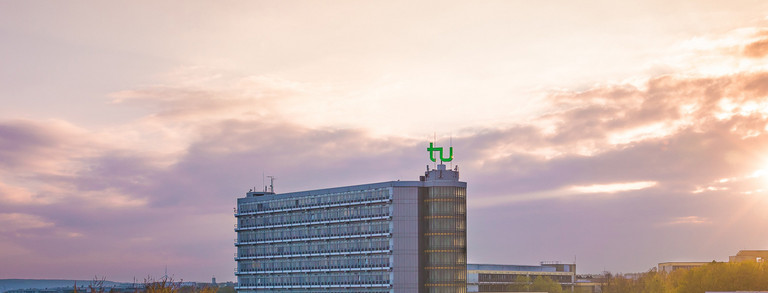High Number of Syrian Students at TU Dortmund University
- Top News
- Campus & Culture

When around 1 million refugees came to Germany in 2015, universities initially expected a large influx of young students from countries such as Afghanistan, Iraq, and especially Syria. However, due to language barriers, access to university studies was initially only possible for a few Syrian refugees. In the first year, the number of Syrian students enrolled at TU Dortmund University nevertheless grew to 120, and three years later it had already doubled. By 2021, 350 students with Syrian citizenship were enrolled.
The vast majority of Syrian students at TU Dortmund University choose to pursue a bachelor’s degree in engineering. From the beginning, computer science has been their most popular subject of study: Currently, one in four Syrian students is enrolled in the largest study program at TU Dortmund University. Architecture, urban planning, and civil engineering are also particularly sought-after fields. Syrian students are predominantly enrolled in German-language programs and not in the English-language master’s degree programs, which recently have gained particular popularity with international students from other countries. This shows that the group of Syrian students has gained access to university studies through acquiring very good German language skills.
Language as the key to educational success
Indeed, preparatory language courses were in high demand for several years among prospective Syrian students from 2015 onwards. The Refugee Counselling and Integration Office at TU Dortmund University helped to secure hundreds of language course scholarschips. Nowadays, German courses play hardly any role for this target group, as a growing number of Syrian students have completed their high school education in Germany. The proportion of so-called “international applicants with a German higher education entrance qualification” among Syrian TU students has steadily increased and is now at 40 percent. The share of students with dual citizenship is also growing: One in five of them holds both Syrian and German citizenship.
Similarly, the number of successful graduations is increasing: In the past ten years, there have been a total of 115 Syrian graduates at TU Dortmund University, with half of them having graduated in the past two years. This development highlights that integration and language acquisition take time, but now a point has been reached where Syrian university graduates can increasingly enter the German labor market as skilled professionals, potentially alleviating the shortage of engineers. Prof. Tessa Flatten, Vice President International Affairs at TU Dortmund University, explains how the university supports international students in entering the job market: “The International Office has been organizing the annual International Carreer Fair for more than ten years, bringing together students from abroad and regional companies. The Tandem2Job mentoring program also helps international students transition into their careers.”
In total, more than 20,000 Syrian students are enrolled at universities in Germany. After the fall of the Assad regime in December 2024, the previous Federal Government ensured that Syrian refugees could travel to their homeland without losing their protection status. How the regulations will be shaped under a new government is still unclear.
Ahmad Jammal took a chance on a fresh start at TU Dortmund University
One of the currently 335 Syrian students at TU Dortmund University is Ahmad Jammal. Like 60 % of Syrian students, he completed his high school education in Syria. Before coming to Germany in 2017, he studied architecture. At TU Dortmund University, he chose the bachelor’s program in computer science because he was interested in programming.
The change of country and subject of study was initially challenging for Ahmad Jammal. “I had to get used to the new system, language, culture, and study program because everything was new to me,” the student recalls. However, he now feels comfortable at TU Dortmund University and appreciates the diverse and exciting topics in computer science studies, as well as the varied university life and the vibrant campus.
During his studies, Ahmad Jammal received the scholarship “NRWege ins Studium” (North Rhine-Westphalian Pathways into Studying) for three semesters, which is awarded at TU Dortmund University by the Refugee Counselling and Integration Office. The scholarship program is funded by the Ministry of Culture and Science of North Rhine-Westphalia and supports students with refugee backgrounds. In addition to his studies, Ahmad Jammal worked at the International Office for over two years, helping to support Erasmus students. He looks forward to working full-time after completing his bachelor’s degree, but he also has not ruled out pursuing a master’s degree.




![[Translate to English:] Partner Four hands are holding the green logo of TU Dortmund University](/storages/tu_website/_processed_/1/d/csm_Partner_Nicole_Rechmann_KW_670eba0154.jpg)




![[Translate to English:] Forschung An apparatus with tubes in a laboratory](/storages/tu_website/_processed_/0/c/csm_Forschung_Juergen_Huhn_4fa3153b51.jpg)
![[Translate to English:] Studium Five students are sitting in a lecture hall. They are talking to each other.](/storages/tu_website/_processed_/c/9/csm_Studium_FelixSchmale_dbdbfb0dd7.jpg)






